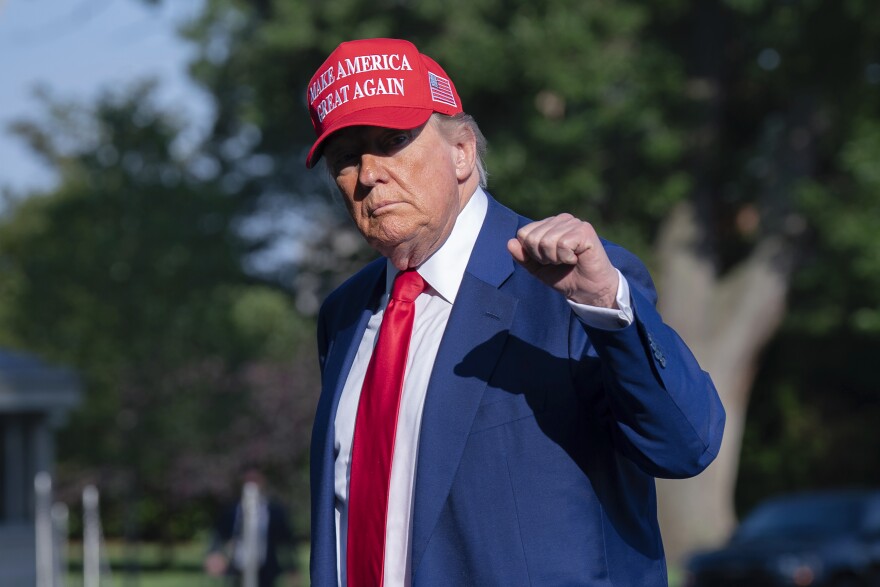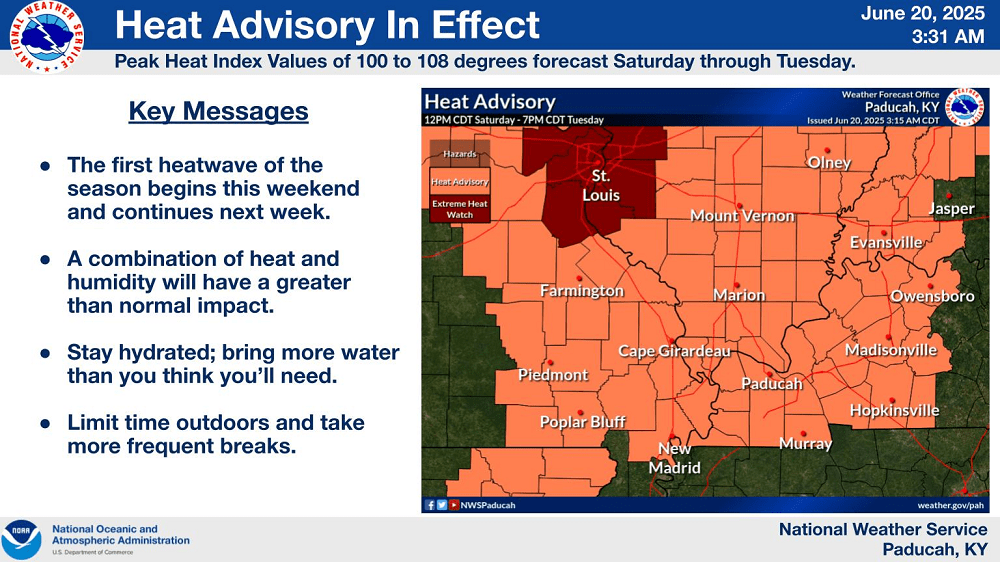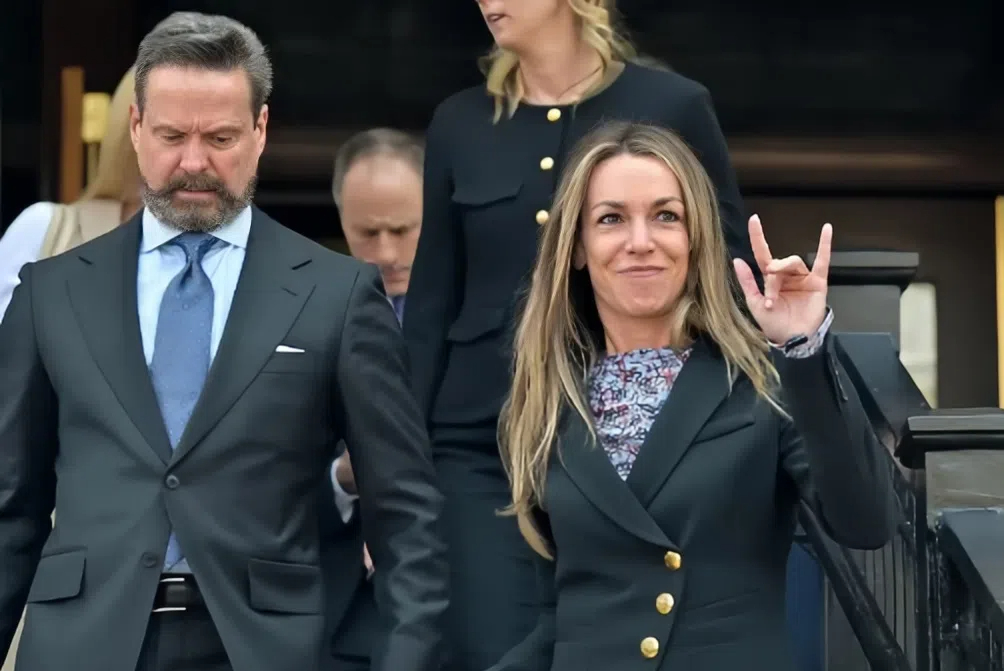
Ceasefire? Trump Announces Israel-Iran Truce, "12-Day War" May End, But Questions Linger
Core Event: Trump's "Peace Declaration"
-
High-Profile Announcement: Former US President Donald Trump dropped a "bombshell" on his Truth Social platform on Monday, announcing a "complete ceasefire" between Israel and Iran, aiming to end the intense conflict he dubbed the "12 DAY WAR". He lavished praise on both sides for their "Stamina, Courage, and Intelligence."
-
Iran Confirms, Israel Silent: An Iranian official subsequently confirmed Tehran's agreement to Reuters. However, in stark contrast, Israeli officials maintained a telling silence, offering no formal response by the time of reporting.
-
US Adds Fine Print: A senior White House official quickly provided "clarification," stating Israel's agreement was conditional – contingent on Iran launching no further attacks. The official revealed the ceasefire deal was personally brokered by Trump in a call with Israeli Prime Minister Benjamin Netanyahu and would be implemented in a phased manner, allowing a window for both sides to "complete any missions that are underway."
The Conflict's Roots and Fierce Escalation
-
The Spark: Nuclear Suspicions! The direct trigger for this war was a massive Israeli air campaign against Iranian nuclear facilities, crucially joined by the US over the weekend. The core accusation from Israel and the US: Iran was getting close to obtaining a nuclear weapon. US Vice President JD Vance stated bluntly on Fox News: "Iran was very close to having a nuclear weapon."
-
Iran's Retaliation and "Calculated Response": Iran vehemently denied ever having a nuclear weapons program (despite Supreme Leader Ali Khamenei's past assertion that "if it wanted to, world leaders wouldn't be able to stop us"). In retaliation, Iran attacked a US air base (the US reported no casualties and "thanked" Iran for the early notice). Analysts believe Iran was walking a tightrope between "saving face" and "avoiding all-out war," a goal it appears to have achieved.
-
Humanitarian Catastrophe: The most immediate consequence of the conflict was an unprecedented humanitarian crisis in the metropolis of Tehran – sustained intense bombing forced millions of residents to flee their homes.
-
Israel's Strategic Intent: The report notes that Israeli strikes on symbolic targets in Tehran, like Evin prison (notorious for housing political prisoners), were clearly aimed more broadly at shaking the foundations of Iran's ruling apparatus and its ability to sustain power.
Behind-the-Scenes Diplomatic Maneuvering
-
Qatar's Shuttle Diplomacy: Behind the scenes, Qatar played a pivotal role. Its Prime Minister Sheikh Mohammed bin Abdulrahman Al Thani secured Tehran's agreement to the ceasefire during a call with Iranian officials.
-
Intense US Engagement: The US team – Vice President Vance, Secretary of State Marco Rubio, and Special Envoy Steve Witkoff – also engaged in intensive communication with Iran through direct and indirect channels.
-
Israel's "Winding Down" Signal: Hours before the ceasefire announcement, three Israeli officials had signaled to the US that Israel was looking to "wrap up its campaign in Iran soon."
The US Stance and Key Declarations
-
"Limited Objectives"? The Trump administration insisted its participation in the airstrikes was "solely aimed at destroying Iran's nuclear program," not opening a wider war.
-
Vance's "Declaration of Victory": However, Vice President Vance's remarks were more striking and controversial. He declared: "Now Iran is incapable of building a nuclear weapon with the equipment they have because we destroyed it." This stands as the highest-profile US assertion of the military operation's core achievement.
-
Trump's "Subtext": Notably, just a day before the ceasefire, Trump had mentioned "toppling" Iran's hardline clerical rulers – Washington's principal foes since the 1979 Islamic Revolution. This created a subtle tension with the US's public stance of targeting "only nuclear facilities."
The Market's Immediate Reaction
-
Positive Response: Financial markets reacted swiftly and positively to the ceasefire news, reflecting global relief at the de-escalation.
-
Stocks Rise: S&P 500 futures jumped 0.4% on the news, pointing to a strong US market open.
-
Oil Prices Fall: Fears of Middle East oil supply disruptions eased, sending US crude futures tumbling to their lowest level in over a week during early Asian trading.
Has the Smoke Really Cleared? (Unresolved Questions & Current Reality)
-
Battlefield Not Yet Calm: Even after the ceasefire announcement, reality served as a reminder of the fragile situation. The Israeli military issued new evacuation warnings to residents in parts of Tehran within hours. Air raid sirens also sounded in the Golan Heights.
-
Core Questions Remain Unanswered:
-
Was the Nuclear Capability Truly Destroyed? How accurate is Vance's claim? How will Iran respond? Will international verification be possible?
-
What Does Israel's Silence Mean? Reports of Netanyahu instructing cabinet ministers to stay silent only add to the enigma. Is Israel fully satisfied with the deal's terms?
-
How Long Will the Truce Hold? The precondition of "no further Iranian attacks" sows seeds of future uncertainty.
-
How Will Tehran Heal? When can millions of displaced citizens return home? How will the city rebuild?
-
(Conclusion) Trump's declaration pressed pause on this brief yet exceptionally brutal "12-Day War." Markets breathed a sigh of relief, and the world exhaled – for now. However, the fate of the woman on that Tehran street, the truth behind the nuclear suspicions, and the deep-seated enmity between these two arch-foes cannot be easily erased by a ceasefire announcement. The agreement's fragility, the key players' silence, and those unresolved fundamental questions all signal that the clouds over this Middle Eastern "powder keg" are far from truly dispersed. Is the ceasefire an end, or merely a pause before the next round of confrontation? Time will tell.




